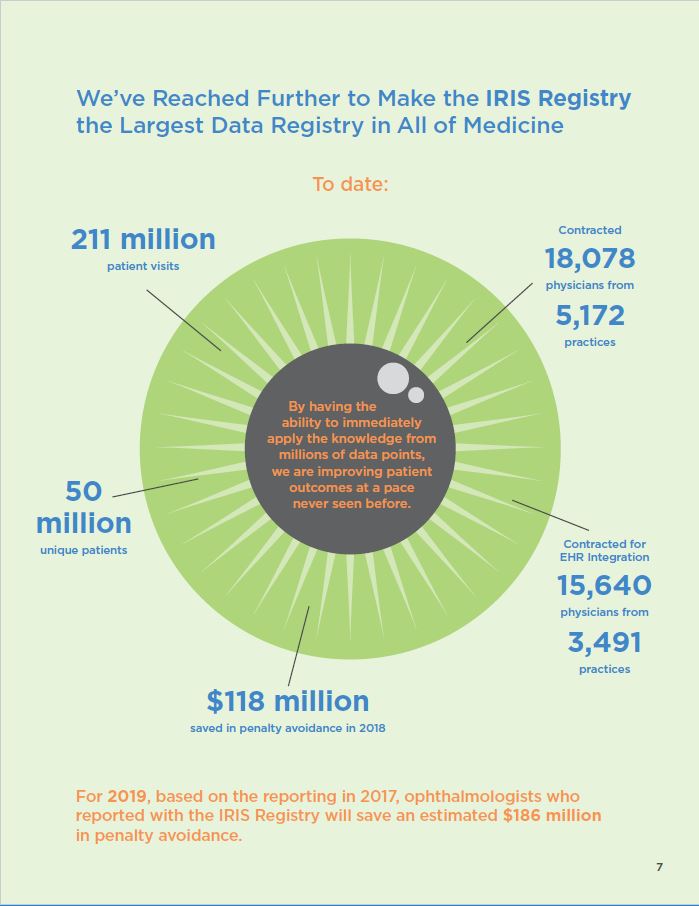Advancing Care With Millions of Data Points
 “The IRIS Registry provides a wonderful opportunity to advance quality of care by analyzing billions of data points on millions of patients. However, creating clinical knowledge from those data is complex. To reach the full potential of the IRIS Registry, we will need to train ophthalmologists to extract pearls from the data that will broaden our understanding of eye diseases and improve patient care.”
“The IRIS Registry provides a wonderful opportunity to advance quality of care by analyzing billions of data points on millions of patients. However, creating clinical knowledge from those data is complex. To reach the full potential of the IRIS Registry, we will need to train ophthalmologists to extract pearls from the data that will broaden our understanding of eye diseases and improve patient care.”
H. DUNBAR HOSKINS JR., MD
FOUNDER, IRIS REGISTRY RESEARCH FUND
From left to right: Tony McClellan
President, Foundation Advisory Board, Christie L. Morse, MD,
Chair, Foundation Advisory Board, H. Dunbar Hoskins Jr., MD,
EVP Emeritus, American Academy of,
Ophthalmology, Ann Hoskins, Ruth D. Williams, MD,
Chair, Orbital Gala, Stephen C. Gieser, MD, MPH,
Chair, Orbital Gala
Last year, the Academy’s the IRIS® Registry (Intelligent Research in Sight) surpassed a major milestone: 200 million patient visits. That’s 200 million chances for physicians to learn from each other.
New research is about to take those lessons further.
The IRIS Registry is a comprehensive eye disease and condition registry: It collects and analyzes millions of data points from patients and practices across the field of ophthalmology. It then distills this information into easy-to-use reports, providing ophthalmologists with clinical benchmarks and practice patterns on millions of patient visits.
The new Hoskins Center IRIS Registry Research Fund will enhance and expand these insights, bolstered by nearly $1 million raised by Orbital Gala 2017 attendees. Former Academy CEO H. Dunbar Hoskins Jr., MD, and his wife, Ann, established the fund with a $100,000 gift which is being supported through a $500,000 donation from the Ophthalmic Mutual Insurance Company. It’s a remarkable opportunity for researchers to:
- Consider new and more effective approaches to prevent and treat eye disease;
- Learn more about treatment impacts, drug interactions and complications; and
- Provide evidence-based clinical answers in shorter periods of time, leading to more rapid improvement in patient outcomes.
Why the IRIS Registry? By participating in the IRIS Registry, ophthalmologists support clinical investigation, get innovations to market more quickly, monitor drug and device safety, and contribute information on treatment patterns. For U.S. members, it’s the easiest way to report quality measures for the Merit-Based Incentive Payment System. And according to a published study, ophthalmologists who monitor their IRIS Registry data improve measured clinical care outcomes.
Now in its fourth year, the IRIS Registry reaches more physicians and patients every day. New research will harness this data, making sure its potential benefits are reaching further too — pointing the way to better practices, patient outcomes and ultimately, eye care everywhere.
